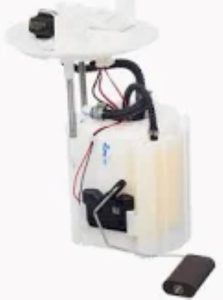One of the biggest myths about fuel pumps is that they go out only when the car stops running altogether, and while it's true that some times this happens without warning, in many cases fuel pumps will give hints before they fail. One of these symptoms is low fuel pressure, which is usually around 40 to 60 PSI. Even just a 10% drop in pressure can result in engine misfires, weak acceleration or stalling long before the pump outright fails. If left too long without attention, a failing pump can increase fuel consumption by up to 15% as the engine works harder.
A third common myth that starts with the letter F is key to this story: keeping your fuel tank close to bone-dry does not hurt your fuel pump. More than 20% to 30%.Running on low gas all the time depletes the fuel pump. The fuel in the tank actually serves as a coolant of sorts for the pump; if it runs too low, the pump can overheat. A tank that is run to empty repeatedly and then filled could result in pump failure at 100,000 miles on a pump designed to last 150,000 miles. This problem was at the center of a number of vehicle recalls due to failing fuel pumps that were blamed on overheating caused by low fuel levels.
It suffers from the misconception that all aftermarket fuel pumps are inferior to factory replacement parts. Although some aftermarket pumps cannot and others can surprisingly deliver greater performance than OEM models. An aftermarket pump like the Walbro can bring it up to a spec which could be argued is more consistent in fuel delivery at high pressures to modified/turbocharged engines; for example, the pre-filtered LPH of something from the group listed would struggle (you might get away with simply adding larger pumps but as I am wanting some MPI anyway...). These pumps will give you a 10% power increase which is not bad when employed in conjunction with other performance tweaks.

The fuel pump — and that it's a one-size-fits all component Fuel pumps come in different flow rates, pressures and electrical requirements so using the proper pump for a vehicle is important or you can have premature failure or just bad performing engine. A perfect example of this would be the installing a 100 LPH pump on a car that requires 150, which could result in complete fuel starvation at up to a 30% loss or damage to the motor over time. It is important for you to choose a pump that is appropriate for your car and can deliver optimal performance.
Lastly, there will be a myth that fuel pump maintenance need not had unless something goes wrong with this one. Regular maintenance, including replacing the fuel filter every 30,000 to 50,000 miles can minimize clogs and debris build up that may cause fuel pump malfunctions. A clogged fuel filter costs between $50 and $100, while the pump itself can run several hundred dollars for a new one so replacing it and avoiding the added stress on an old motor is well worth it.
Know more about Common Fuel Pump Myths and Facts related to them: Visit Fuel Pump.